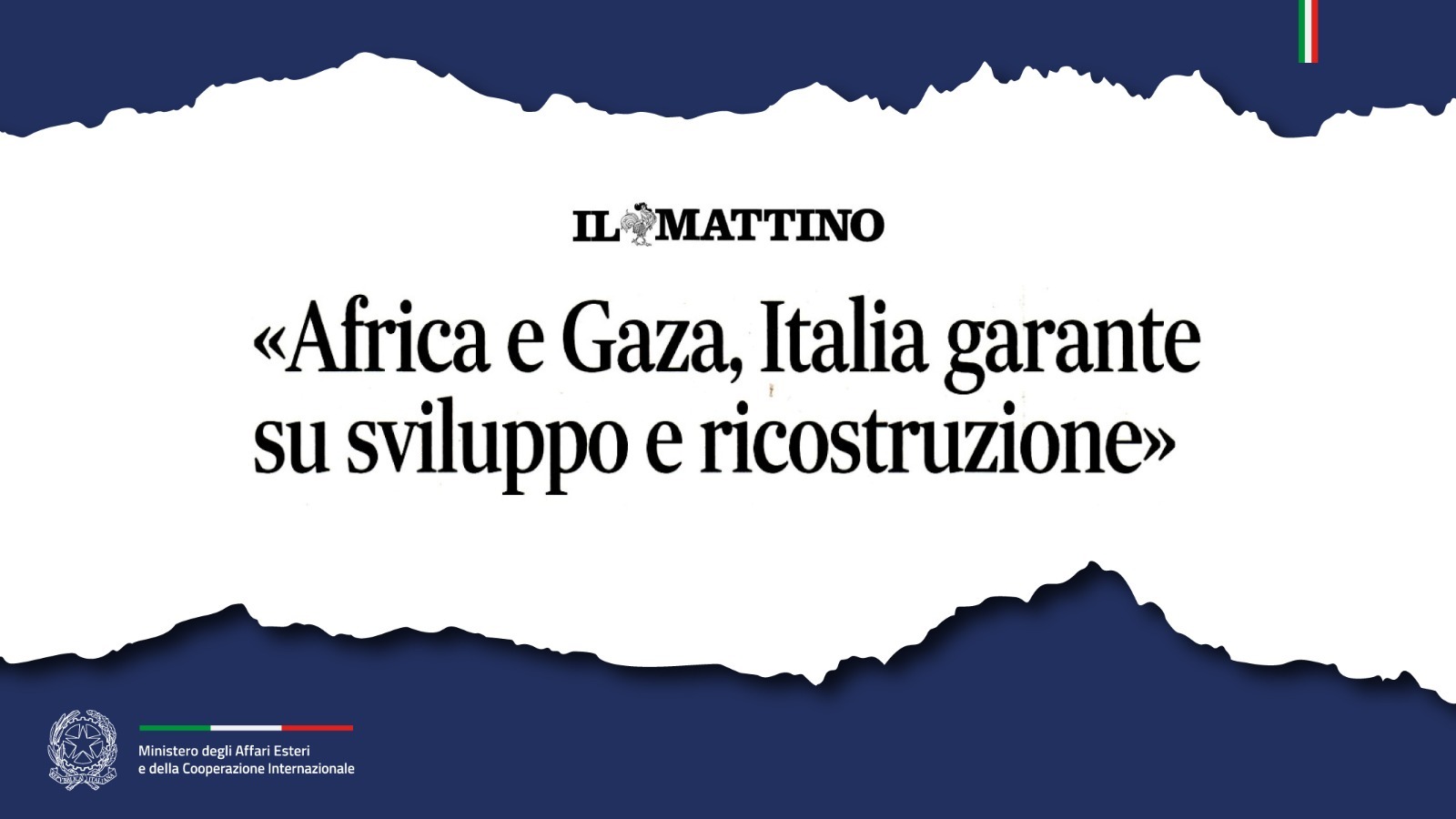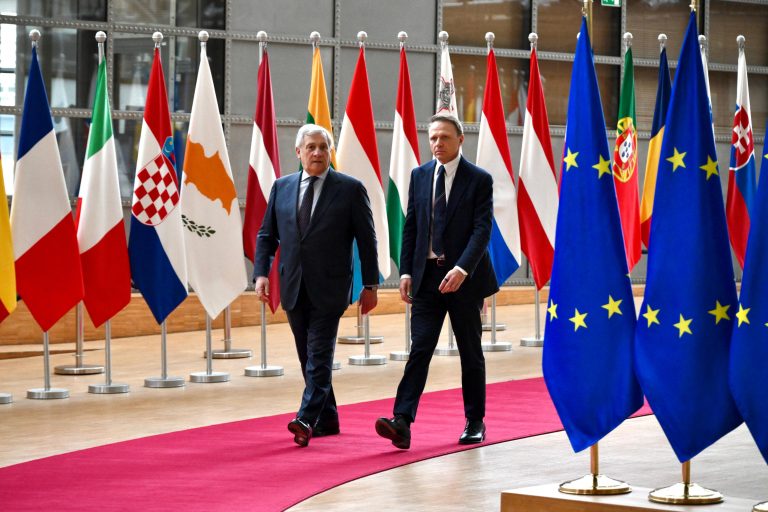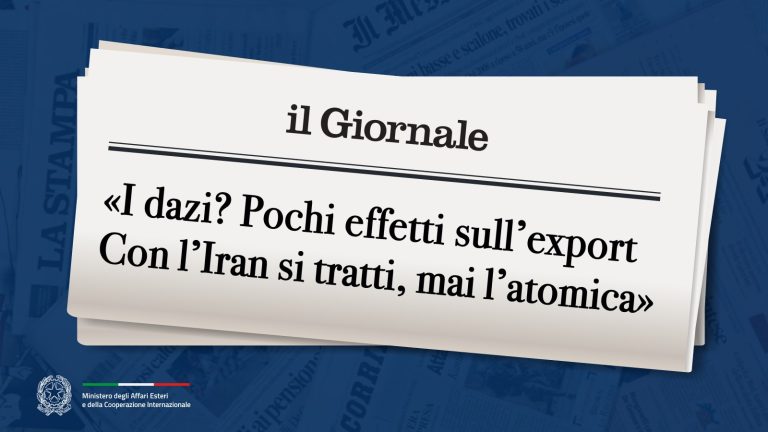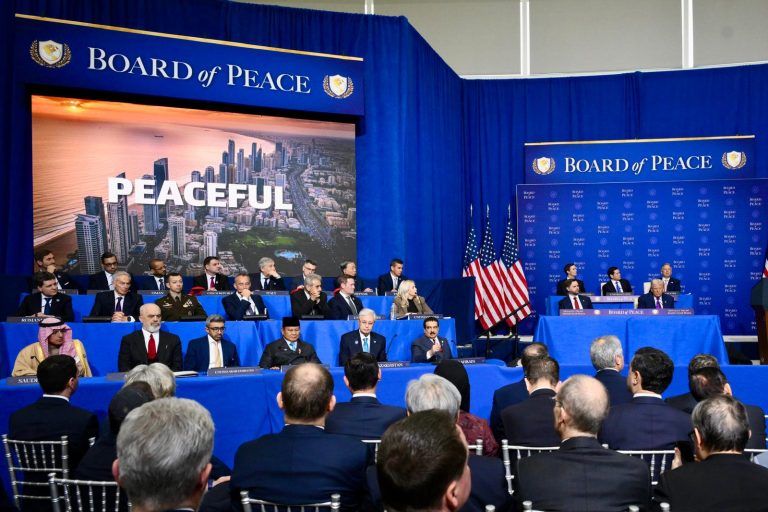Foreign Minister and Deputy Prime Minister Antonio Tajani, Mali is about to fall into the hands of Al Qaeda, and the crisis risks spreading to the entire Sahel region. What can Italy do, considering that you have just completed a delicate mission to West Africa?
“The danger in Mali is twofold, because jihadists and supporters of the Islamic State are aiming to take control of the government. For days, they have stopped the flow of fuel tankers from Atlantic ports to this landlocked country. There is a climate of tension and concern for the foreign communities in Bamako. I remember that in 2024, an entire Italian family was freed only after much effort: Rocco Langone, his wife Maria Donata Caivano and their son Giovanni were kidnapped on 19 May 2022 from their home on the outskirts of the city of Koutiala, south-east of Mali’s capital Bamako, where they had been living for several years. Most of our compatriots, about 60 people, have currently decided to leave the country. The secondary risk is that the jihadist threat from Mali could also strengthen and spread to other Sahel countries, and this is precisely what we are trying to avoid with our diplomatic efforts at the international level.
What is the current situation?
“Ambassador Dejak from Bamako has updated us on the fact that the crisis seems to be slightly improving in recent hours. There have been no new actions by the “JNIM” (the jihadists) and the Bamako government seems to be holding up. The flow of fuel to the capital has resumed, albeit in quantities that are insufficient to meet demand. The airport has fuel for aircrafts. There are reasons to believe that the blockade imposed by the JNIM is not a precursor to a jihadist coup against the military authorities and that it may instead be a large-scale demonstration. But we are monitoring developments closely.”
What actions is the Italian government taking?
“We are in sub-Saharan Africa to combat terrorism and defend the security of our citizens and our companies. We defend our idea of equal political partnership with these countries. Our plans for security cooperation include a very important mission: 350 of our military personnel are operating in Niger with the specific task of training the army and police officers. Niger plays a fundamental role: geographically, moving northwards, after that country there is Libya, and we all know how strategic Italy’s relationship with Libya is. The Agades region, the centre through which weapons and illegal trafficking pass, must be kept under control.”
Is the Mattei Plan going ahead or will it undergo changes and delays?
‘The Mattei Plan is proceeding according to the schedule and objectives set. Italy is viewed very favourably and is particularly appreciated by African countries: we have cooperative and collaborative relationships with countries that are very rich in raw materials. I wish to recall that Niger is a country rich in uranium, and we have privileged relations with Mauritania, Chad and Burkina Faso. At the Italy-Africa Summit in January 2024, a “Partnership Programme” worth €105 million was signed with Senegal. Senegal is a priority country for Italian development cooperation, traditionally receiving around €15 million per year to finance projects mainly related to rural development, education and support for the private sector. Since January 2025, it has been a partner country of the Mattei Plan. Italy is also recognised as playing a leading role in the implementation of the Global Gateway, in stark contrast to the neo-colonialist policies pursued by China and Russia.
In recent hours, reports have multiplied about another tragically violent war in Africa, the one in Sudan…
“In Sudan, two generals who now control two opposing armies have been causing tens of thousands of deaths for two years. It is a massacre that no one fully knows and understands: only now are reports coming in from survivors of the siege of El Fasher, the capital of Darfur, which was besieged for months by the RSF and fell after 18 months of siege. They tell of summary executions, massacres, children killed in front of their parents: Sudan is a hidden catastrophe that we must address, the massacre of civilians must be stopped.”
Are you concerned about the growing tension between the United States and Venezuela?
“It is a very complex crisis. The United States is deploying a massive military force by sea. The Italian government has not recognised the election results announced by Maduro, and therefore we do not formally have an ambassador to Venezuela, but a chargé d’affaires. We are following the cases of Alberto Trentini, and all our compatriots who have been detained, through our diplomatic representatives and direct interventions from Rome.”
How do you assess the fragile truce in Gaza?
‘The efforts and results achieved so far should be encouraged. We are already present with military and diplomatic personnel in the CMCC, the centre opened by the United States and Israel to advance the truce and stabilisation of the Gaza Strip. Tomorrow, a delegation from our country (military and diplomats) will be in the region for further meetings and to pave the way for the Recovery Conference scheduled for mid-November in Cairo, which Italy is co-organising together with Egypt. The countries of the Arab world must be involved in this process because the ultimate goal is to bring peace to the entire region and lay the conditions for development and progress.”
Do these crisis scenarios jeopardise Italy’s growth plans?
“We are focusing on growth diplomacy, and our goal of reaching 700 billion in exports by 2027 remains unchanged. The figures for extra-EU exports confirm that Made in Italy products are strong, in demand and appreciated in new markets in Asia, India, Japan, the Middle East and Mercosur. We are working with EU Commissioner Sefcovic to ensure that certain products, such as steel and aluminium, can benefit from tolerable US tariffs. For others, such as wine, we are working towards a total exemption. We are also engaged in in-depth discussions with President von der Leyen – also as EPP – to amend the EU budget, particularly with regard to agricultural funds and cohesion resources.”
Will there be a new package of military aid for Ukraine?
Putin is intensifying his attacks in Donbass to obtain more favourable negotiating positions at a later stage, after three years of modest military results. China’s intervention will be crucial in bringing about a ceasefire and a stable peace process.”





